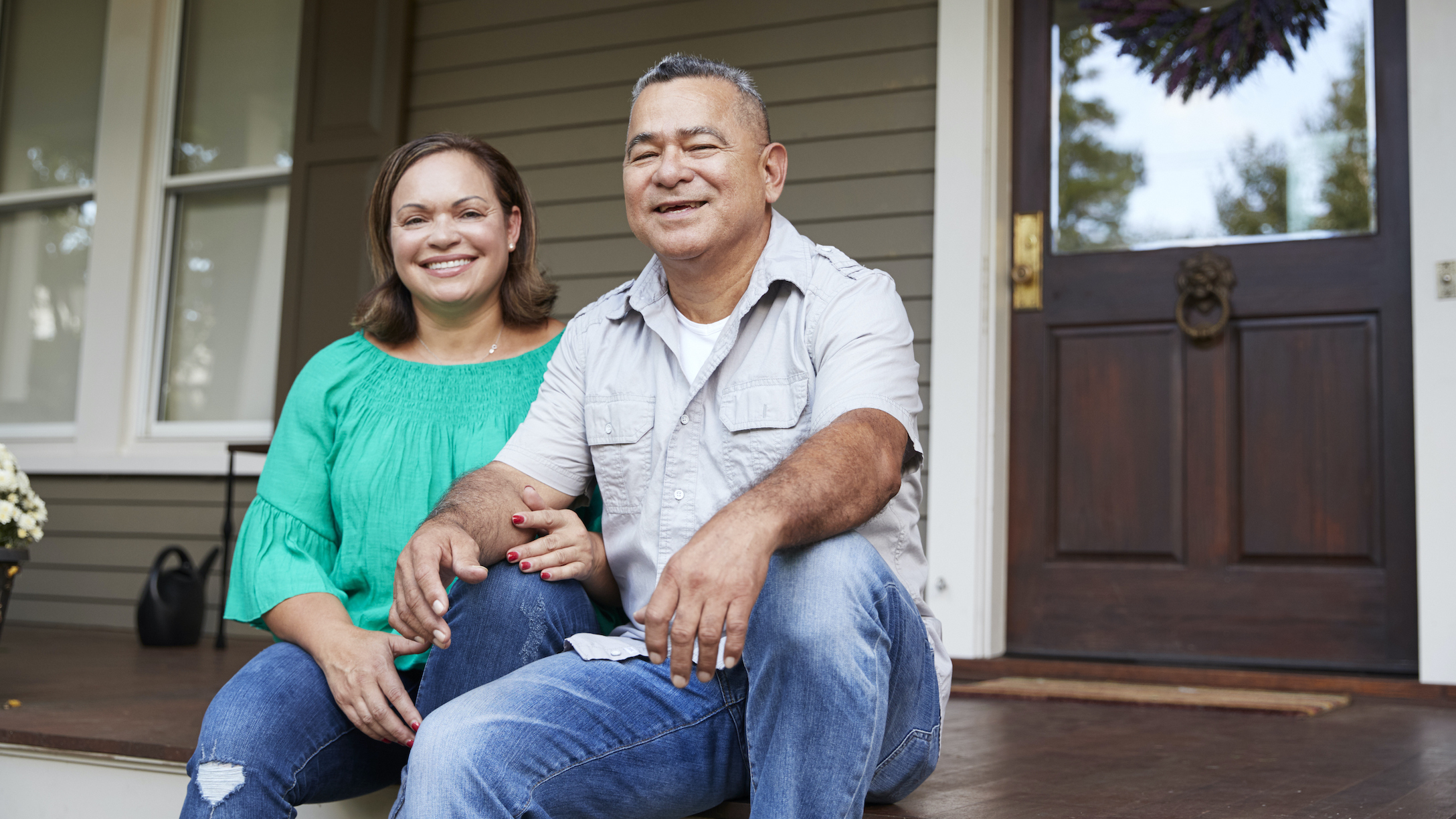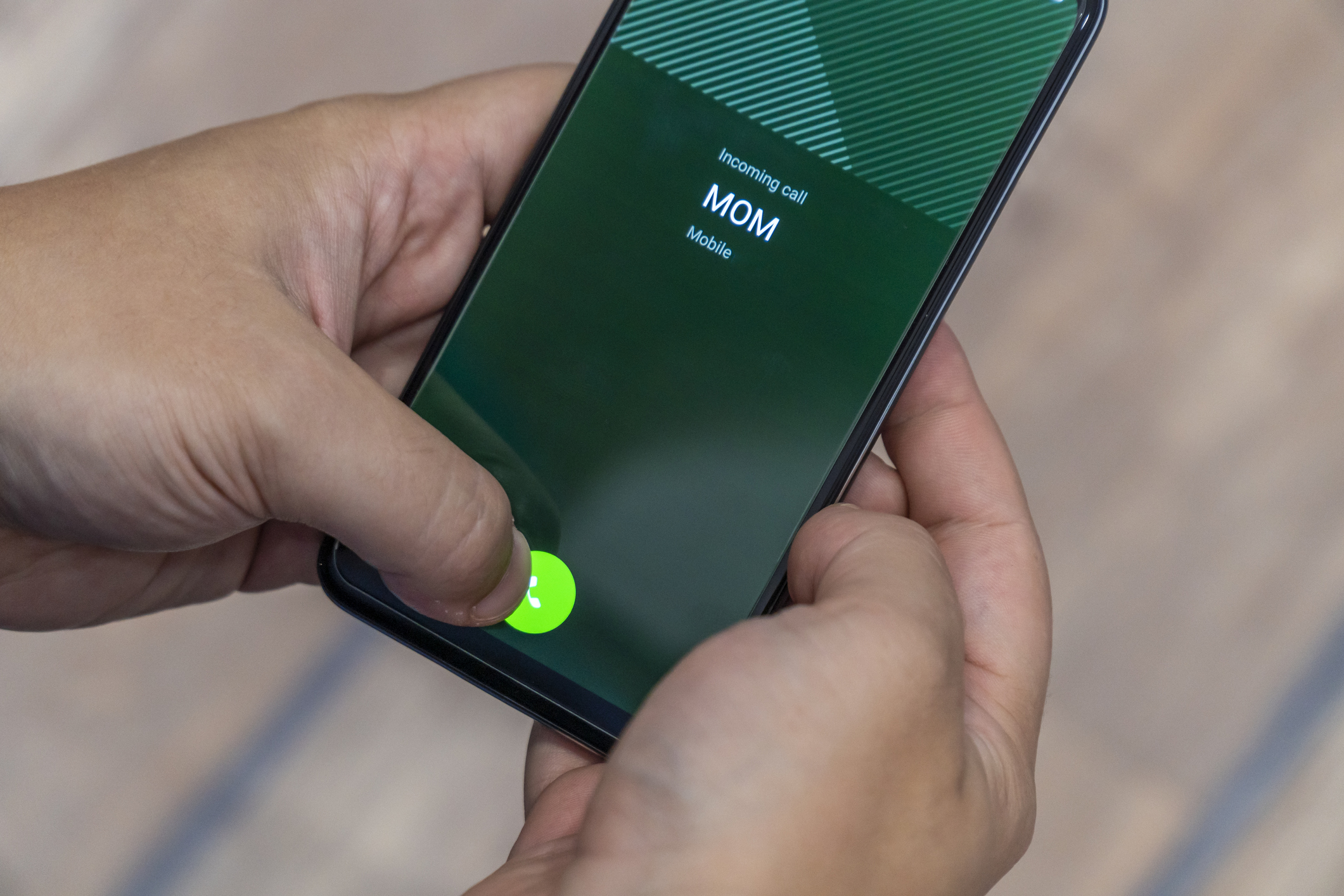
When you first become a parent, you'll hear one thing over and over again: "Enjoy every moment because it goes by so fast." Sometimes you appreciate the reminder, and other times you want to tell the person to STFU and keep their tired clichés to themselves, because you haven't slept for more than an hour at a time since you can't remember when and you're having one of those days that feels like it will never end. But cliché or not, they are right. It goes by so fast that one day you'll find yourself saying goodbye to your child as they go off to college or some other life adventure, and it will feel like it all happened in the blink of an eye. And now what? How do you transition from being a parent 24/7 to being the parent of someone who no longer lives with you? It can be a difficult transition for many parents—so much so that it's been named "empty nest syndrome." But don't worry—if you do experience it, there are ways to cope with it.
More from MamásLatinas: An open letter to every mamá Latina sending her daughter off to school
But before we even get to the coping part, what is empty nest syndrome? Is it an actual condition? Can you be treated for it? Can you get a vaccine? Are some people immune to it? Is it contagious? So many questions. Well, according to the Mayo Clinic, "Empty nest syndrome isn't a clinical diagnosis. Instead, empty nest syndrome is a phenomenon in which parents experience feelings of sadness and loss when the last child leaves home." OK, so it's a "phenomenon" that doesn't feel very phenomenal at all for any parent going through it. But that's the thing you have to remind yourself of when it's happening—that it's something you are going through, and the feelings of sadness or emptiness will not last forever. Here are a few things that you can do to help you through the process.
Get ready for it before it happens.

If possible, prepare yourself for what you'll do once your child leaves before it's time to say goodbye. Sit down and consider possibilities of things you would like to try or go back to doing once you have more time to focus on yourself. Write it all down so that when the time comes, you aren't drawing a blank.
Let yourself feel all the feelings.

You may feel all kinds of things at once: happiness, sadness, fear, excitement, and worry. It's OK—let yourself feel them all. It's natural. This is a big change for you, your child, and your family. Notice what you are feeling, and if you feel overwhelmed from one minute to the next, consider keeping a journal to jot down all the feelings you are experiencing.
Don’t expect your child to console you.

Yes, you might feel really sad that your baby who isn't a baby is leaving home, but don't put that sadness on your child. They have their feelings to deal with, and they shouldn't be the ones helping you feel better about them leaving. That's a whole lot of guilt to put on them. Instead, work through the feelings on your own, with your partner, with friends, on paper, with a therapist, or with all of the above.
Let them take the lead.

Guess what? After all the years of being in charge of your child and raising them so that one day they can go off on their own, it's time to let them go off on their own. That means it is time to let them take the lead and make their own choices. You can't do it all for them anymore. It's hard, but you can do it. You have to.
Remember that your child is going through a transition as well, and be respectful.

So many exciting and wonderful things are happening for your child. They are getting ready to go off on their own, and that's a huge deal for them. Let them experience it in their own way; don't make it about you or what it was like for you when you left home. This is about them and their experience.
Give your child space.

Once your child is out of the home, it might be hard for you not to know where they are at every moment of the day, but you are going to have to learn to deal with it. Do not expect them to be texting or calling constantly, and do not call and text them constantly. It's annoying. Give them the space that they need to adapt to their new surroundings and schedule.
Set up a check-in schedule.

Of course, you're going to want to hear from your child regularly, and if your child isn't one to check in regularly, then set up a weekly date. Maybe it's every Sunday evening at a certain time. You can do a video call or whatever works for the both of you. Setting up a mutually agreed upon time makes it so that you aren't trying to get in touch at an inconvenient time and then wondering why your kid isn't taking your calls.
Don’t be a meddler; be a supporter.

Be honest—do you like being told what to do all the time or having someone constantly meddle in your business? Probably not. Well, your kid probably doesn't like it, either. So instead of always trying to tell them what to do or giving unsolicited advice that drives them away, show them that you are a good listener by listening instead of trying to solve their every problem. Sometimes that's all they want from you. Make it clear to them that you are always available to listen and should they need your help, all they have to do is ask for it.
Do fun things with your partner or to your partner.

If you are in a relationship, you and your partner might not react to your child moving out in the same way, and that's OK. You can still be there for each other, and what better way to be there for each other than to have fun with each other—fun you might not have had time for before. Finally you can watch movies that you'd be uncomfortable watching in front of the kids. Or you can get your romance on more spontaneously. Wink, wink!
Do fun things with yourself.

Take that "me" time you've been craving and make it a regular thing. Read, relax, exercise. Take yourself on outings, go for walks, enjoy being your wonderful self. You get to spend time with yourself, and that's a great thing. Figure out who you are at this point in your life, and find out what gets you excited.
Take a class.

We live in an era where it's easy to take a class in person or online. So if you've always wanted to learn how to do something and you have the financial means to do so, then really, you have no excuse. Sign up for a class and learn. Learning should be a lifelong process.
Reach out to family and friends who have been through it.

Know anyone who has gone through the kids-moving-out stage already? Reach out to them. They've been there, and they will help you get through it. Don't feel bad about it, either. This is a very natural stage of parenthood, and sometimes just knowing that you are not alone helps a ton. If nothing else, you can let your guard down with someone who knows what you are going through and will not judge you.
Be proud of yourself!

Guess what you did? You raised a human being who can now go and survive without you. That's no small accomplishment. You loved them, you nurtured them, you taught them, and now you have to trust that they can be on their own. You did a great thing, and you should be incredibly proud of yourself. No one could blame you if you decided to treat yourself with a vacation or gift. Just sayin'.
Be patient with yourself.

It's OK if it takes you a while to get used to this new phase of parenthood. You've been doing the hands-on parenting thing for how many years? And now it's changing to mostly hands-off. It makes sense that you might feel lost for a bit. Take your time. Be kind to yourself; you're tender right now.
Get professional help if you need it.

If you find that your empty nest syndrome isn't going away, there is no shame in seeking out the help of a therapist. You've done your best to teach your child how to take care of themselves, right? So why wouldn't you do your best to take care of yourself? Your mental health is a very important part of your health in general. Talk to your medical provider about how you are feeling, and ask them to refer you to a therapist if you don't have one already.




